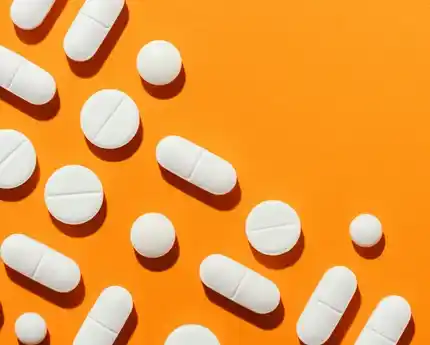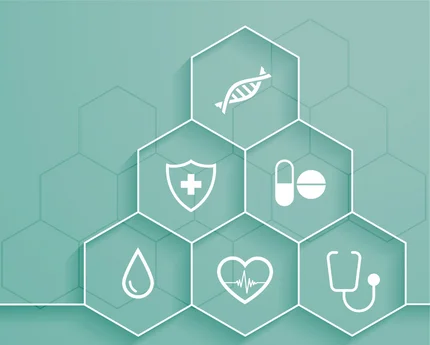
Uses for Acetaminophen Use this product as indicated and ingest it. Observe every instruction on the product package. If you have any questions, speak with your doctor or pharmacist. Acetaminophen comes in a wide variety of brands and dosage forms. Read the dosing instructions for that product carefully because the amount of acetaminophen in each medication may differ. Never consume more acetaminophen than is advised. (See also Section on Caution.) If you want to administer acetaminophen to a child, make sure you use a product made for kids. Use your child’s weight to find the correct dose on the product package. If you don’t know your child’s weight, you can use their age instead. If the medication is a suspension, fully shake it before taking each dose. Some liquids don’t need to be mixed before use. Observe every instruction on the product package. To precisely measure the liquid medication, use the supplied dose-measuring spoon, dropper, or syringe. Never use a regular spoon. Chew or allow pills to dissolve on the tongue before swallowing them, with or without water, if the tablet dissolves fast. If the tablets are chewable, chew them completely before swallowing. Extended-release pills shouldn’t be chewed or crushed. This could result in a sudden, total leak of the medication, increasing the likelihood of adverse effects. Completely swallow the tablets. For effervescent pills, combine the recommended amount of water with the dose before taking them. As soon as the first signs of discomfort arise, it is advised to take medications. If you wait until the symptoms are severe before taking the medication, it might not work as well. Do not take this fever-relieving medication for longer than three days if your doctor has not prescribed it. Use this medication only as directed by your doctor, and never for more than 10 days at a time to treat adult pain (5 days in children). If the child has a sore throat, get medical attention as soon as possible, especially if they are also feeling feverish, headachey, queasy, or vomiting. If your disease persists, gets worse, or if you start experiencing any new symptoms, let your doctor know. If you suspect you might have a major medical issue, get immediate medical attention. Side Effects of Acetaminophen Also, see the Warning section. Typically, this medication has no negative effects. Immediately get in touch with your doctor or pharmacist if you experience any odd effects. Remember that if your doctor has prescribed this medication for you, it means that he or she has decided that the risk of side effects is less than the benefit to you. There are no known negative effects, according to several users of this drug. Will this drug occasionally result in a very severe allergic reaction? However, if you develop any serious adverse reaction symptoms, such as a rash, itching, or swelling (especially of the face, tongue, or throat), extreme dizziness, or trouble breathing, seek medical attention right once. medical attention right away. Overdose Notes NSAIDs like aspirin, ibuprofen, and naproxen may induce stomach and intestinal ulcers, whereas acetaminophen does not. But unlike NSAIDs, acetaminophen does not lessen swelling (inflammation). For further information and to find out which drug could be best for you, speak with your doctor. Untaken Dose If you use this medication on a regular basis and forget to take a dose, do so right away. Skip the missed dose if the following dose is soon due. At the scheduled time, take your next dose. To catch up, do not increase the dose. Storage Items should be kept at room temperature and away from light and moisture. Keep out of the bathroom. Keep children and pets away from any drugs. Avoid dumping medications down the toilet or pouring them down drains unless specifically instructed to do so. Dispose of the product properly when it is no longer required or has expired. Consult your pharmacist or the waste management company in your area. Interactions Also, see the Warning section. Drug interactions may change how your medications work or increase the risk of serious adverse effects. This document does not list all potential drug interactions. To your doctor and pharmacist, keep a list of all the medications you use, including prescription, over-the-counter, and herbal supplements. Without your doctor’s approval, never start taking a drug, stop using a medication, or change the dosage. Ketoconazole and levoketoconazole are a few of the products that may interact with this medication. This medicine may affect some laboratory tests, leading to potentially inaccurate test findings. Make sure the lab personnel and all of your doctors are informed that you take this medication. Precautions Also, see the Warning section. If you have any allergies, including to acetaminophen or any other medications, let your doctor or pharmacist know before taking any acetaminophen. The inactive components in this product could result in allergic responses or other issues. For more information, consult your pharmacist. Inform your doctor or pharmacist about your medical history before using this medicine, particularly if you have liver disease or regularly consume or abuse alcohol. Sugar or aspartame may be present in liquid formulations, chewable pills, dissolving/effervescent tablets, and powders. You should exercise caution if you have diabetes, phenylketonuria (PKU), or any other condition that requires you to restrict or avoid these substances from your diet. If you have any of these conditions, consult your doctor or pharmacist for advice on how to use these products safely. If you’re expecting it, tell your doctor before taking this medication. Breast milk is able to absorb acetaminophen. Before breastfeeding, speak with your doctor. Speak to your doctor or pharmacist.

5 Tips to Find and Contact API Providers It goes without saying that finding a provider of Active Pharmaceutical Ingredients (APIs) can be challenging. You’ll need a huge network, to be an expert at Googling, or to cooperate with third-party services. And can you picture acquiring APIs without Internet access? I most emphatically cannot. To assist you and your colleagues in becoming experts at sourcing APIs, we have compiled a list of top tips that you can use the next time you are looking for an API. 1. Take advantage of the internet. Historically, one of the most searched words on Google is the word “Google.” What I’m trying to say is that not everyone was born in front of a computer, as millennials are. The more specific your search terms, the better the results. This is true not only for Google but also for other search engines such as Baidu and Bing. When your search terms are simply the name of an API, such as salbutamol, you will most likely only receive information aimed at end users and consumers. However, if you start adding terms like “pharma,” “API,” “API supplier,” and “GMP” and use your new search query “salbutamol API suppliers with GMP,” you will only get relevant results for your sourcing process. By the way, the quotation marks you see behind me aren’t just for show! When you include those before and after your search terms, Google will only look for exact matches. However, finding the right results can still be difficult, which is one of the reasons we created Pharma offer. As a result, anyone can gain free access to all API suppliers. You no longer need to spend time manually searching because you can simply search and filter based on your needs with a few mouse clicks. But enough of that, let’s get to the next point. 2. Make use of your words! What would we be if we didn’t communicate effectively? Take the time to add some context to your product inquiry when you send it. What will your company make with the raw material? What qualifications do you require? What is the timetable? This is all extremely useful information for the supplier to have! Of course, there must be a balance. I don’t think the supplier would be interested in hearing about the entire history of the company that you copied/pasted from your website but would like to know more than “urgent quote please”! ;-). Based on the information you provide, the supplier will determine whether or not the inquiry is interesting. So, add information that you believe is most relevant; it’s not only polite but also in your best interests. As an added bonus, go through your received emails and see what questions you typically receive from suppliers. You can consider including one of those answers in advance on your next inquiries to show the supplier how serious you are. However, be careful not to reveal your negotiating position by saying too much. 3. Make it your own. We all have favorites, even at work. You would go the extra mile for your favorite coworker, supplier, customer, or delivery person. Remember that the person on the other end of your screen has more interests than just business. Take time out from time to time for a chat, or make plans to meet in person at business conferences such as the CPhI. Of course, when developing business relationships, you should always be sincere; only when there is a genuine connection should you get personal with another. And then just talk about football, which is what I prefer. 4. Conduct your research With the power of the internet, you wouldn’t go to a hotel or restaurant without first doing some research on them. So, in the business world, before approaching a supplier, spend some time getting to know them. Check out their website or Pharma offers company page to find answers to at least a couple of your questions. You can, for example, filter based on what certificates they have and where they produce their APIs. Making an effort to learn about the supplier will also limit the number of suppliers to whom you will send your inquiry. Sometimes less is more, and the quality of your inquiry will show the supplier how serious you are. Explain why you chose this particular supplier in your inquiry; this is useful information for them. Wouldn’t you do the same thing in a job interview? Instead of going in blind and contacting a dozen different suppliers, pick a few and do some research on them. 5. Bargaining Of course, no one wants to overpay for goods or services. Is it, however, a good idea to begin your conversation by asking for low prices? I don’t believe so. The price is important, but it must be fair to both parties. It is unfair to compare the price of a well-qualified European producer to the price of a random producer found on Alibaba; in the end, you get what you pay for. So be aware that quality can come at a cost. When the supplier realizes he is dealing with a serious and trustworthy buyer, he will realize that this could lead to a long and fruitful business relationship. Because you both have to invest in this business relationship, it is in his best interest to give you a fair price. Nobody wants to part ways after just one order, so make sure he understands you’re in this for the long haul and expect the best service at the best price. Backward negotiation is another thing that most suppliers will not appreciate. If you need 25 kgs of an API, don’t tell them you need 500 first, only to later reveal the true amount you require. Be realistic and open; don’t tease the supplier by acting like a bigger fish than you are. Be realistic and open; don’t tease the supplier by acting like a bigger fish than you

What is API in Pharma? – Everything You Want to Know Pharma is a big industry. However, The value chain, on the other hand, can be broadly divided into two categories: API and finished formulation. API is a component of the drug that allows it to produce the desired effect. China is one of the top API suppliers. In 2020, when the pandemic started and severely disrupted the supply in China, the pharma industry was affected for the time being due to the shortage of raw materials. *What does API mean in the pharmaceutical industry? Pharmaceutical Active Ingredients API stands for Active Pharmaceutical Ingredient. A raw ingredient used in pharmaceutical products is referred to as an API and raw ingredients actually differ slightly from one another. But first, let’s define what an API in pharmaceuticals is. An API is a physiologically active component that is utilised in medications (including capsules, pills, injectables, and more) to achieve the desired effect. It is one of the two primary components of the medicine, the other being excipients, a substance that is chemically inactive but nonetheless has the same effect as API. For instance, the acetaminophen API in the well-known antihistamine Benadryl is what makes it effective. The active component acetaminophen assists in managing allergy symptoms and has the desired effects. *Exactly How Are APIs Made? API producers first purchase the necessary raw ingredients. Many chemical compounds go through the intermediate phase before becoming an API. There are numerous intermediates used in the manufacturing process that converts basic ingredients into APIs. The API is put through stringent quality testing and analysis after manufacturing to ensure that it is ultra-pure and meets the appropriate quality standards. *Drug API and Potency The strength of a drug is determined by the quantity of the active ingredient, also known as its strength. This information can be found on the medicine’s packaging. Even when creating the same drug, different brands or manufacturers have their own techniques and standards that can impact the strength of their medicines. In any event, they must show the nation’s regulatory authority that their drugs are effective. *Raw Materials and API When it comes to the distinction between API and raw materials, many people conflate the two terms. In reality, raw materials are the fundamental chemicals that are used to make an API. So, in order to create this active component, API producers purchase raw ingredients. The pharmaceutical companies are then given the API, which they utilise to make medications. *How Drug Companies Obtain API In the past, pharmaceutical companies would produce their own APIs. However, in recent years, an increasing number of businesses have outsourced API development to cut expenses on high-priced machinery, infrastructure, and labour. They purchase the active ingredients from API manufacturers and then mix the API with pharmaceutical excipients to make the medication. As a result, a lot of American pharmaceutical companies import their APIs. China and India are the two countries with the largest markets for the production of API. *Concerns with API Outsourcing Internationally While sourcing active components has benefits, there are also downsides, including concerns regarding the quality of the outsourced APIs and how this may affect the effectiveness and safety of medications. Poor API quality can cause infections and even death. To allay this concern and ensure that API is supplied in compliance with the highest standards, governmental Organisations in a number of countries have put tight rules and screening procedures in place. *The Pharma Industry is Changing The pharmaceutical sector is rapidly evolving. Pharma API has had a huge impact. Nowadays, pharmaceutical companies would rather outsource API production than handle it all themselves. As a result, their bottom line has dramatically changed. More firms are expected to adapt as the transformation continues to grow.

0